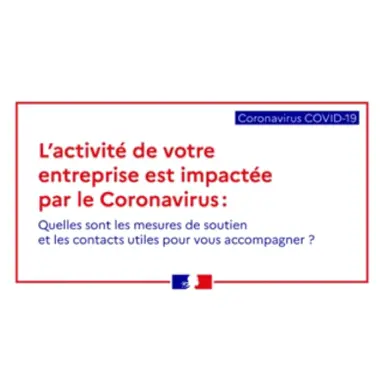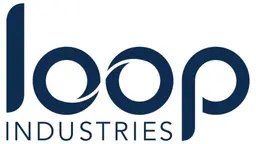
While the French population has been confined at home since March 17, 2020 and until at least 15 April, many companies, including those in the cosmetics industry, have been forced to adapt their activities or even stop them. CosmeticOBS takes stock of the different steps to be taken in this period of crisis, in order to pass this difficult step and ensure the sustainability of its company.
In addition to the health storm that is raging in the country (and the world), it is a real administrative imbroglio that companies have to deal with.
Here is a brief summary, point by point, of the new provisions in force and the aid that can be applied for.
Decrease or stop your activity
The employer has an obligation to telework its employees whenever possible. If this is not the case, he may place his payroll on short-time working.
Employees will be paid 70% of their gross remuneration, i.e. 84% of the net.
Please note that partial unemployment is not automatic; the company must be in one of the situations mentioned in Article R5122-1 of the Labour Code.
In order to help employers see a little more clearly, the Ministry of Labour has put a diagram online so that they can find out whether they are eligible for the scheme.
Employers must make an online application and have a period of 30 days from the date on which the employees are partially employed.
After receiving the application and examining it, the Direccte (Regional Directorate for Enterprises, Competition, Consumer Affairs, Labour and Employment) notifies the company of its decision, by e-mail, in principle within 48 hours.
This decision entitles the company to the application of the legal regime for partial activity.
Minister Muriel Pénicaud has indicated that a failure to reply within 48 hours is deemed to constitute acceptance of the agreement.
At the usual pay due date, the employer pays the employees an indemnity equal to 70% of their gross remuneration (on the basis of the gross remuneration taken into account for the calculation of holiday pay). This request contains information for each employee on the weekly hours actually worked (or similar, such as vacation, sick leave due to coronavirus, and so on) and the weekly hours actually worked off. The allowance is paid to the company by the Service and Payment Agency (ASP), within an average period of 12 days,“ indicates the Ministry of Labour.
Please note that this 70% relates only to hours not worked, the hours actually worked being paid as usual.
In the event that human resources procedures turn into a headache, FEBEA has reaffirmed its commitment to those involved in the beauty industry.
Its social department provides permanent assistance by email and telephone as well as a dedicated legal and social support service.
Disinfect the workplace
If one or more employees fall ill, it is imperative to ensure the safety of others and to clean the premises.
A latency period for intervention is desirable, as coronaviruses can probably survive 3 hours on dry surfaces.
The personnel in charge of cleaning must be equipped with gowns and gloves, the wearing of masks is not mandatory.
Keeping your children
As nurseries and schools have been closed since Monday 16 March 2020 (and probably until the beginning of May), parents may be forced to stay at home to look after their children. They can then benefit from an indemnified work stoppage.
The parent concerned contacts his or her employer and discusses with him or her the teleworking arrangements that could be put in place. The request must be made by the employer via the employer page of the ameli site.
In order to benefit from it, the employee must meet certain conditions:
• Children must be under 16 years of age on the day the stoppage begins
• The children must be enrolled in a closed school or be domiciled in one of the communes concerned (the lists of communes are regularly updated on the websites of the rectorates)
• Only one parent (or holder of parental authority) may be granted a work stoppage (the employee must provide his employer with a sworn statement certifying that he is the only one to request it on this occasion)
The company must not be able to put the employee to telework (work stoppage must be the only possible solution during this period).
Manage paid holidays
An ordinance on paid holidays was signed by the President of the Republic on 25 March 2020 and published in the Official Gazette on 26 March 2020.
It states that, in order to cope with the epidemic and to ensure the sustainability of the company, an employer may “impose” the taking of days of leave acquired by an employee, up to a limit of six days, or modify the dates on which part of the paid leave is taken.
However, to do so, an agreement must be signed within the company.
This cannot be implemented at the employer’s initiative alone.
Getting to or from a risk area
In accordance with the provisions of Article L. 4121-1 of the Labour Code, the employer is responsible for the health and safety of the employees of his company, within the framework of their activities.
At present, the international situation means that many countries are confined and only allow access to their land to their own nationals.
All travel abroad should therefore be suspended for the time being.
In the event that an employee returns from a risk area, he or she should stay at home, in fourteen days, and work remotely if possible. If telework is not possible, it is up to the employer to place the employee at risk away from fragile people, to avoid unnecessary meetings and to avoid spaces where he or she can have close contact with others.
Scale your loads
For many professionals, it’s a headache: how to pay your expenses when cash is frozen?
A series of measures have been taken to avoid bankruptcy.
It is possible to specify deferral wishes by logging on to your online personnal account. Postponement or agreement on a time limit is also possible for supplementary pension contributions.
It is up to each company to contact its supplementary pension institution.
For all structures in difficulty in paying their taxes, the Directorate General of Public Finance has announced the postponement without penalty of the settlement of their next direct tax instalments (advance payment of corporation tax, payroll tax). The request can be made on the tax site, from the personal space.
Getting help when you’re a SME/VSE
The State and the regions have just set up a solidarity fund of EUR 1 billion to relieve structures with a turnover of less than EUR 1 million.
This also includes the self-employed, micro-entrepreneurs and VSEs.
Aid of €1500, on simple declaration, should be paid between the end of March and the beginning of April.
For the moment, the online form is not yet accessible.
To help businesses overcome the difficulties caused by the coronavirus health crisis, the State Guaranteed Loan has been set up by the Ministry of Finance. It can represent up to three months of the company’s 2019 turnover, or two years of payroll for innovative companies or companies created since January 2019. The application is made online. The enterprise must obtain this loan from its bank.
Produce hydroalcoholic gel
Faced with the shortage of disinfectants, which are essential for the proper respect of barrier gestures to prevent the spread of the virus, many players in the sector wanted to make their contribution.
Companies wishing to reconvert their production lines in order to help the manufacture of hydroalcoholic gel can count on the support of FEBEA, COSMED and Cosmetic Valley for all technical questions.
Whether it is a question of having access to formulas, being put in contact with suppliers of raw materials, or producing DIPs, these different structures are ready to answer the questions of the brands.
The government has launched the Stopcovid19 platform, enabling manufacturers and distributors of essential products and equipment, as well as their service providers and subcontractors, to market their offer to health professionals, retirement homes or EHPADs.
Go further
• See the website of the French Ministry of Labour
• See the website of the French Ministry of Health
• See the Coronavirus page published by the government.













